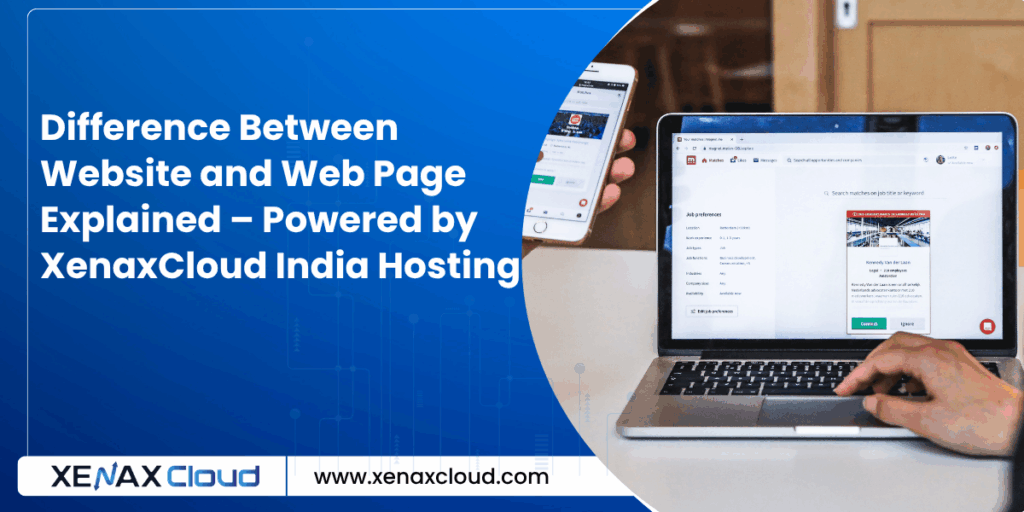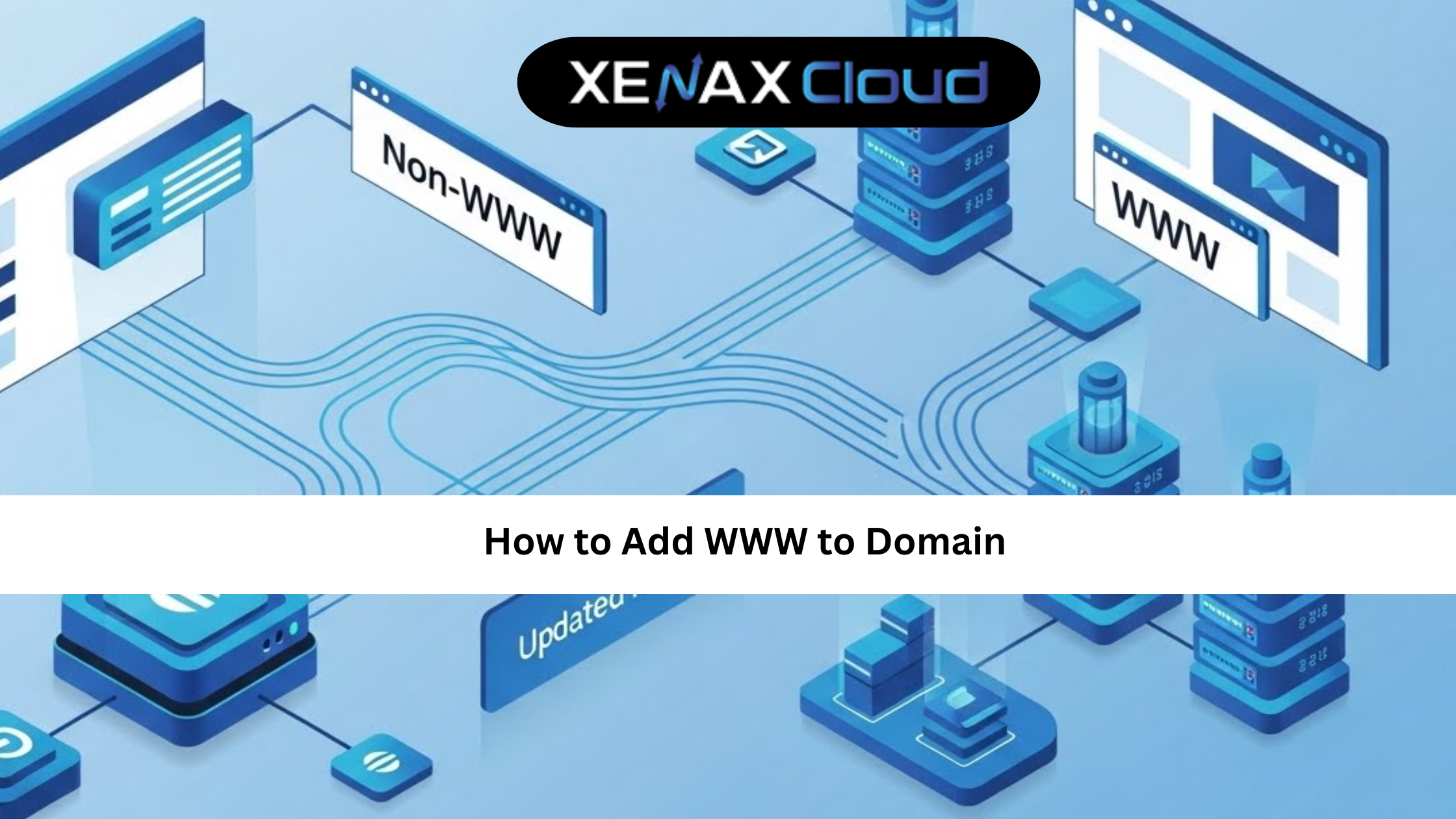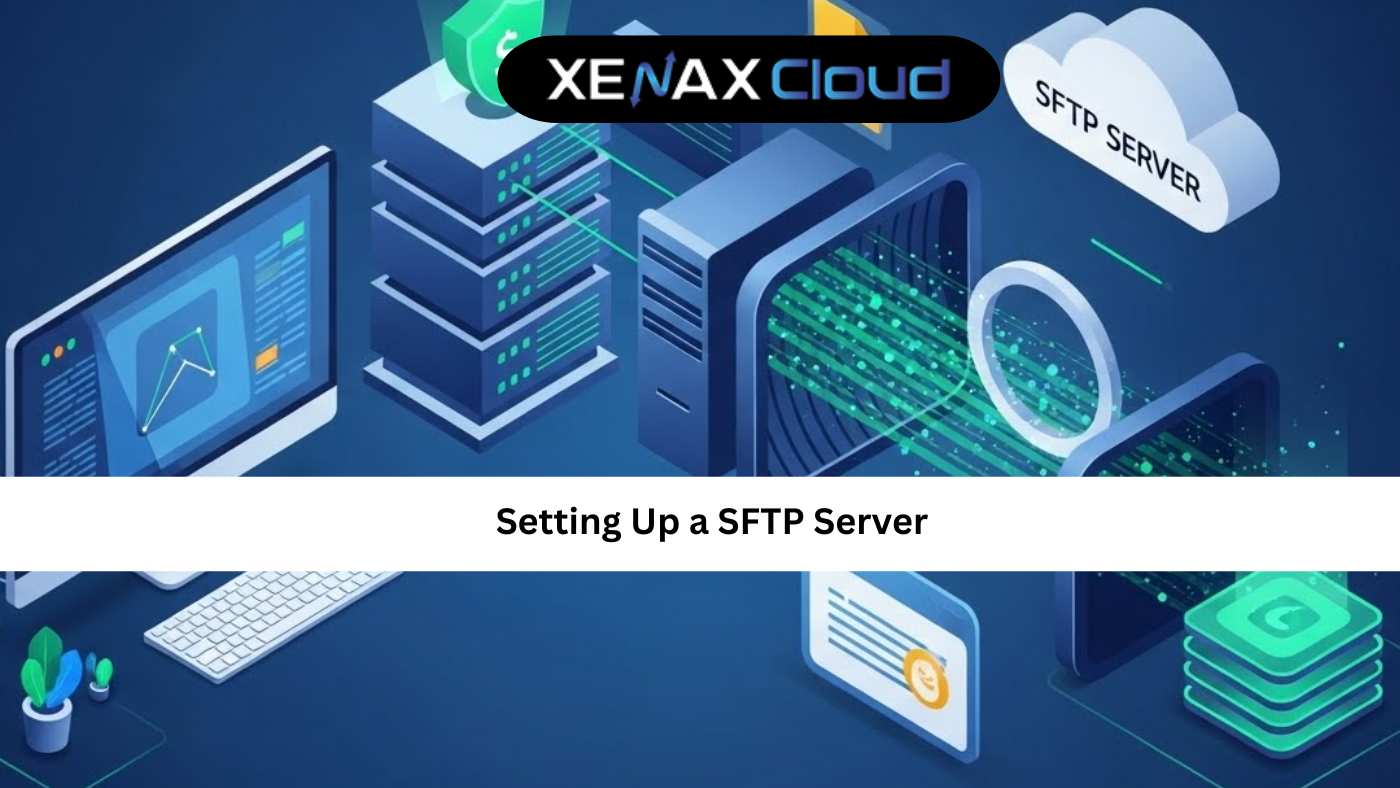Understanding the difference between website and web page, as well as the difference between web page and web browser, is fundamental for businesses and developers building an online presence. These concepts shape how you design, host, and manage digital content. Xenax Cloud, with its state-of-the-art India-based data center, offers a comprehensive suite of web hosting solutions—Shared Hosting, VPS, Dedicated Servers, and more—that cater to both single web pages and complex websites. This 3000-word guide explains these differences, explores Xenax Cloud’s hosting offerings, and highlights why their Indian servers are ideal for businesses seeking reliable web hosting solutions.
Difference Between Website and Web Page
A web page is a single document, typically written in HTML, displayed in a web browser. It contains content like text, images, or forms and is identified by a unique URL (e.g., https://yourbusiness.com/about). A website, on the other hand, is a collection of interconnected web pages under a single domain, such as Xenax Cloud, which includes pages for services, contact, and more.
Key distinctions include:
- Scope: A web page is one part of a website, which may contain multiple pages.
- Functionality: Web pages focus on specific content (e.g., a product page), while websites provide a cohesive user experience.
- Examples: Xenax Cloud’s Shared Hosting page is a web page, while xenaxcloud.com is the website.
Understanding this difference helps businesses choose the right hosting solution for their needs, whether it’s a single landing page or a full website.
Difference Between Web Page and Web Browser
The difference between web page and web browser is equally important:
- Web Page: A digital document (e.g., HTML file) hosted on a server, viewable via a URL.
- Web Browser: Software (e.g., Chrome, Firefox) that retrieves and renders web pages for users.
For example, you access Xenax Cloud’s VPS page using a browser like Chrome. The browser interprets the page’s code, while Xenax Cloud’s servers deliver the content. Reliable hosting ensures fast page loading, enhancing the browser experience.
Why Hosting Matters for Websites and Web Pages
Both websites and web pages require robust hosting to ensure accessibility, speed, and security. Xenax Cloud’s India-based hosting solutions, including Indian RDP, Reseller Hosting, and Domain registration, provide low-latency access, compliance with India’s data protection laws, and 24/7 localized support. Whether hosting a single web page or a multi-page website, Xenax Cloud’s web hosting solutions optimize performance for Indian users.
Xenax Cloud’s Hosting Solutions for Websites and Web Pages
Xenax Cloud offers a range of hosting solutions tailored for hosting web pages and websites, ensuring scalability and reliability.
1. Shared Hosting: Affordable Web Page Hosting
Shared Hosting is ideal for single web pages or small websites. Features include:
- cPanel access: Simplifies web page and website management with user-friendly tools.
- Free SSL certificates: Secures data transfers and boosts SEO.
- 99.5% uptime: Ensures reliable access to web pages.
This is perfect for startups or small businesses hosting landing pages or simple sites.
2. VPS: Scalable Website Hosting
Xenax Cloud’s VPS offers dedicated resources for larger websites or multiple web pages. Benefits include:
- Root access: Full control for custom web server configurations.
- Customizable resources: Scale CPU, RAM, and storage for growing sites.
- India-based servers: Low latency for Indian users.
VPS is ideal for businesses with dynamic websites or e-commerce platforms.
3. Indian RDP: Secure Remote Management
Xenax Cloud’s Indian RDP provides secure remote access for managing web pages and websites. Features include:
- Seamless connectivity: Update content or server settings remotely.
- Robust security: Protects sensitive website data.
- Affordable plans: Cost-effective for developers and IT teams.
This is perfect for remote website administration.
4. Dedicated Servers: High-Performance Website Hosting
For complex websites with high traffic, Xenax Cloud’s Dedicated Servers offer exclusive resources. Benefits include:
- Full resource allocation: Optimal performance for large websites.
- Custom configurations: Tailor servers for specific web applications.
- Indian data center: Fast access for local users.
This is ideal for enterprises with multi-page websites or heavy workloads.
5. Domain Registration: Secure Your Website Identity
A domain name is essential for websites and web pages. Xenax Cloud’s Domain registration services offer:
- Competitive pricing: Affordable .com, .in, and other extensions.
- Easy DNS management: Streamlined setup for web pages and websites.
- Local appeal: .in domains resonate with Indian audiences.
A professional domain enhances credibility and SEO.
6. Reseller Hosting: Offer Web Hosting Solutions
Xenax Cloud’s Reseller Hosting allows you to provide hosting services under your brand. Features include:
- White-label branding: Build a professional hosting business.
- Scalable resources: Support multiple client websites or web pages.
- 24/7 support: Xenax Cloud handles technical issues.
This is ideal for agencies offering web hosting solutions.
Benefits of India-Based Hosting for Websites and Web Pages
Xenax Cloud’s India-based data center offers:
- Low Latency: Fast loading for web pages and websites, improving user experience and SEO rankings.
- Data Compliance: Adherence to India’s data protection laws, ensuring secure hosting.
- Localized Support: 24/7 assistance in multiple Indian languages, tailored for local businesses.
- Scalability: Solutions for single web pages to complex websites.
These advantages make Xenax Cloud a top choice for businesses hosting web content in India.
How to Host a Web Page or Website with Xenax Cloud
Here’s a step-by-step guide to host a web page or website using Xenax Cloud’s services:
- Choose a Hosting Plan:
- Select Shared Hosting for a single web page or small site.
- Opt for VPS or Dedicated Servers for larger websites.
- Register a Domain:
- Purchase a domain via Xenax Cloud’s Domain registration service (e.g., yourbusiness.in).
- Set Up the Server:
- Use cPanel (Shared Hosting) or root access (VPS/Dedicated) to configure the web server (e.g., Apache or Nginx).
- Upload web page files (HTML, CSS, JavaScript) to the server.
- Secure the Site:
- Enable free SSL certificates via Xenax Cloud’s hosting plans.
- Configure firewalls for added security.
- Manage Remotely:
- Use Indian RDP to update content or server settings securely.
- Test Accessibility:
- Access your web page or website via a browser to confirm it loads correctly.
- Check performance for Indian users to ensure low latency.
Xenax Cloud’s India-based servers ensure fast, secure hosting for your web content.
Advanced Tips for Managing Websites and Web Pages
To optimize your web pages and websites on Xenax Cloud:
- Optimize Performance: Use caching (e.g., LiteSpeed on Shared Hosting) to reduce load times.
- SEO Best Practices: Include meta tags and alt text for images to improve search rankings.
- Secure Content: Use Xenax Cloud’s SSL certificates and regular backups to protect data.
- Monitor Traffic: Analyze visitor data with tools like Google Analytics, hosted on Xenax Cloud’s servers.
- Scale Resources: Upgrade to VPS or Dedicated Servers as your website grows.
Xenax Cloud’s hosting ensures these optimizations run smoothly and securely.
Common Use Cases for Web Pages and Websites
- Small Businesses: Host a landing page on Shared Hosting to showcase products.
- E-Commerce: Run a multi-page website on VPS for online stores.
- Enterprises: Deploy complex websites on Dedicated Servers for high traffic.
- Remote Teams: Manage web content with Indian RDP for secure access.
- Resellers: Offer hosting for client websites via Reseller Hosting.
Xenax Cloud’s solutions support all these scenarios with ease.

FAQs
1. What is the difference between website and web page?
A web page is a single document, while a website is a collection of web pages under one domain, hosted on Xenax Cloud’s Shared Hosting or VPS.
2. What’s the difference between web page and web browser?
A web page is a document hosted on a server, while a web browser (e.g., Chrome) displays it. Xenax Cloud ensures fast page delivery.
3. Can I host both web pages and websites with Xenax Cloud?
Yes, Xenax Cloud’s Shared Hosting, VPS, and Dedicated Servers support both.
4. Are Xenax Cloud’s hosting solutions secure?
Yes, all plans include free SSL certificates, firewalls, and backups to protect web pages and websites.
5. Can I manage multiple websites with Xenax Cloud?
Yes, VPS or Reseller Hosting supports multiple websites with scalable resources.
Conclusion
Understanding the difference between website and web page, as well as the difference between web page and web browser, is crucial for building a strong online presence. Xenax Cloud offers unmatched web hosting solutions—Shared Hosting, VPS, Indian RDP, Dedicated Servers, Domain, and Reseller Hosting. With India-based servers, Xenax Cloud ensures low latency, security, and compliance for hosting web pages and websites. Explore their services today to power your online presence with confidence.






